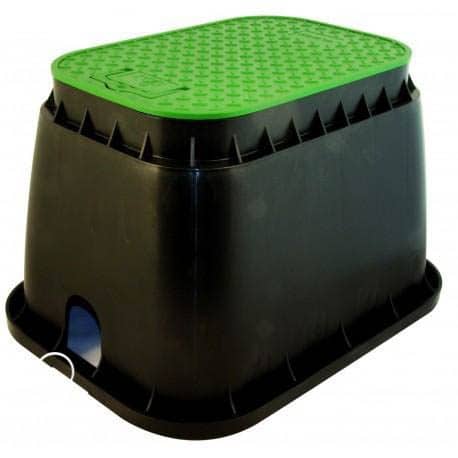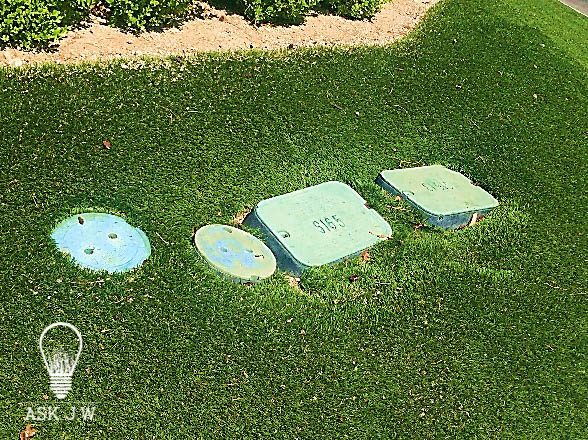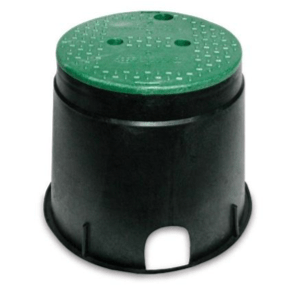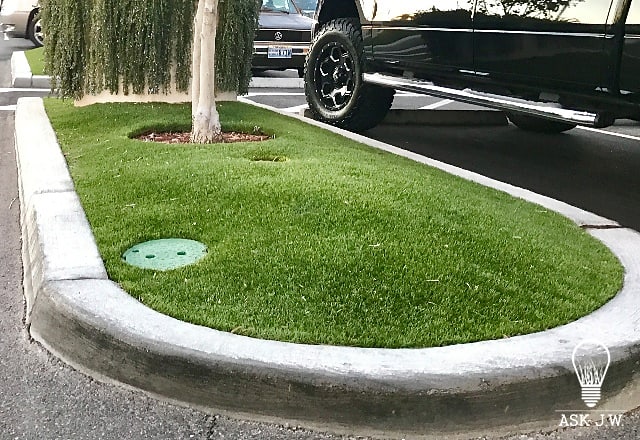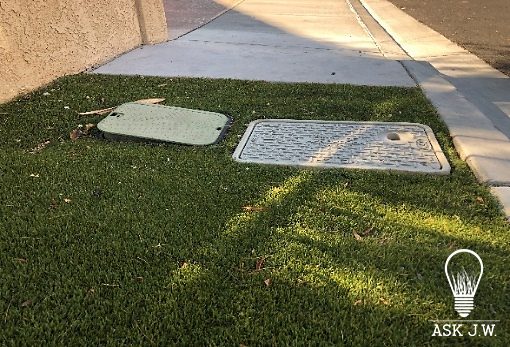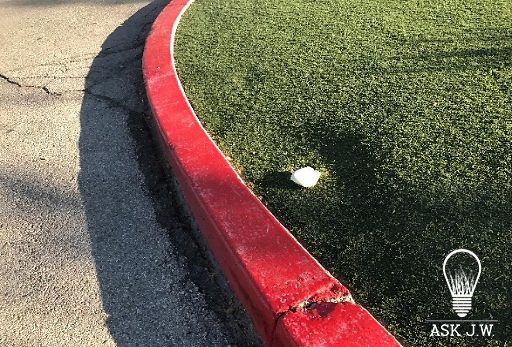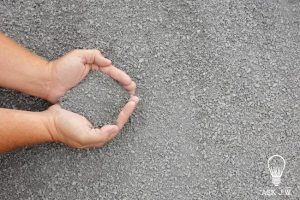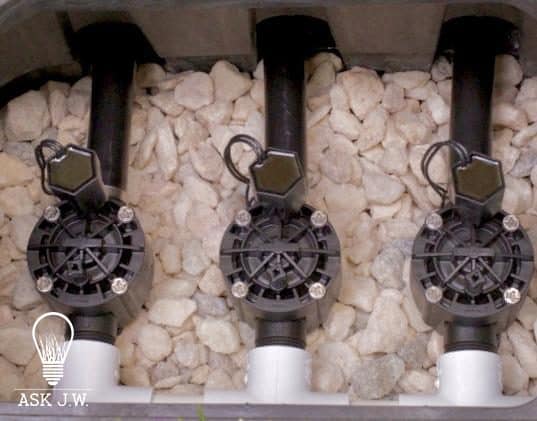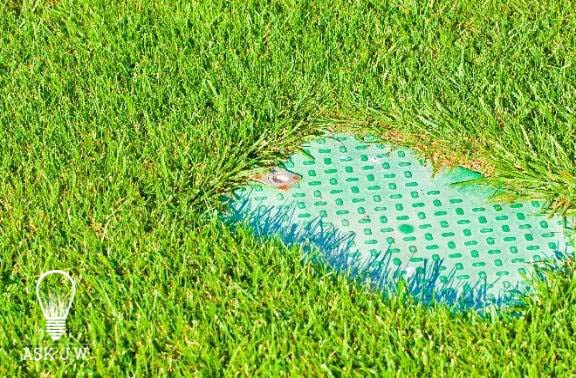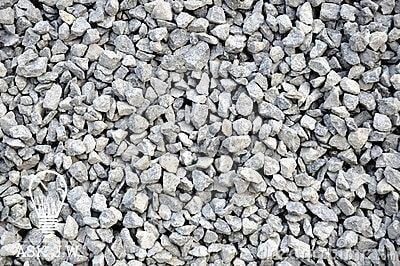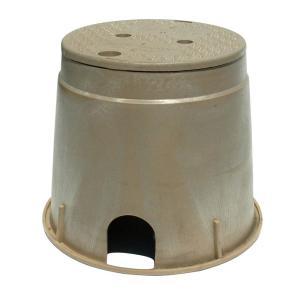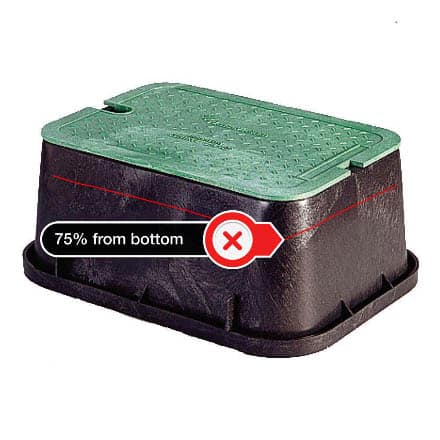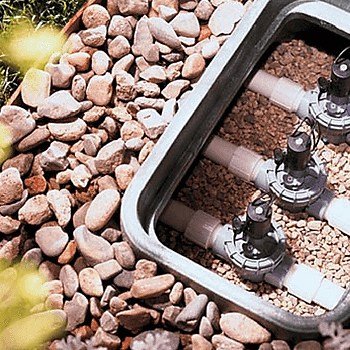I have been so blessed to have developed many relationships across the nation with some extraordinary turf Installers. I enjoy listening to their turf stories and the way they express their attentiveness to become better craftsmen. For anyone that wants to be in the synthetic turf industry, you must understand each component of combining materials, products, tools, and specifications for each installation. Irrigation and utility boxes are a crucial component when placing synthetic turf around them.
This month ASK JW will help you understand the Importance of stability when it comes to Utility & Irrigation Boxes & Synthetic Turf.
“To become the best in synthetic turf, you must research, study, practice and make mistakes along the way”… JW
Through the years I have noticed synthetic turf installations having depressed areas around Utility and Irrigation Boxes. Synthetic turf installers have been ignoring how crucial the sub-base preparation is to prevent settlement. Settlement in synthetic turf occurs due to improper materials, poor compaction, bad repairs or irrigation problems. If your turf installation encapsulates utility boxes, please follow these simple steps so that your installation and reputation are not ruined.
JW
Materials & Compaction
The above pictures show poor compaction at Utility & Irrigation boxes. This poor workmanship has now left depressions in the surface. These depressions no doubt will causes trip hazards and may cause injury. Most of the settlement that occurs around utility & irrigation boxes is due to placement of poor materials
Below are types of materials that I DO NOT recommend using underneath synthetic turf especially around Utility & Irrigation boxes. These materials will not retain cohesion or bond and will cause the sub-base around the box to settle and may cause a trip hazard and /or Injury.
- Beach Sand
- Top soil
- Silt
- Loam
- Clay
I recommend aggregates that are created with high quality hard rock, sand and gravel.
Below are types of materials for placing underneath synthetic turf and around Utility & Irrigation boxes. When placed in smaller lifts and compacted properly, these materials will retain density, allow permeability and withstand excessive water penetration.
Please note** I recommend placing ¾” rock or 7/8” (aggregate, gravel) 75% of the height of the utility/Irrigation box. This will leave 25% height left to place your compacted DG/Chat so the staples or nails will oxidize and secure the edge of the turf.
- Aggregate (rockbound)
- Crushed / Decomposed Granite
- Limestone Chat
- type II/ Road base
- 3/8” minus mixture
Materials & Compaction
Drainage rock (aggregate, gravel) when placed correctly will give stability to the utility/irrigation box. Drainage rock placed underneath, inside and around the box will allow excessive water to penetrate, drain and prevent settling of the synthetic turf. If the Irrigation valves, connectors or pipe becomes damaged and starts to leak, the drainage rock will keep the area stable for years to come.
Many hardware stores sell all types of rock in small bags. This makes it convenient since you will only need a couple of bags for its completion.
Exit drains, French drains and Catch Basins must have stable compaction surrounding its inlets. Excessive water run-off that flood near drain exits will cause failure in the subgrade and will prevent the drain from being serviceable.
Ask JW Recommendations
**If the box is used to contain electrical or anything mechanical, turn off or shut down to prevent any bodily harm**
Prior to placing the Utility/Irrigation box, place approximately 3-6 inches of 3/4” or 7/8” aggregate (rock/gravel) under the irrigation valves. You may have to excavate and remove soils by hand if the valves are existing. This will give the box stability from future settling due to water intrusion.
Excavate and set the utility/irrigation box to the proper elevation
Place 3/4” or 7/8” aggregate (rock/gravel) from the outside perimeter bottom of the utility/irrigation box and fill to 75% of its height. When completed, the level of the gravel should be approximately 2-3 inches below the top of the box.
Compact with a hand tamper or head of a sledge hammer until the rock has been compacted together preventing any voids. This will give and maintain the area around the box, giving the box stability in case heavy rainfall, flooding or leaking of any irrigation valves occur.
I recommend taking a long handled sledge hammer and use it vertically like the picture to the left for compacting small trenches and around utility/irrigation boxes. Be careful not to damage the underlying pipes.
Place and compact Decomposed Granite, Limestone Chat, or Type II/ Road base from the aggregate/gravel level (75%mark) to the top (25%) of the utility/irrigation box. Again, Compact with a hand tamper or head of a sledge hammer until the materials have been compacted together preventing any voids.
Secure the turf edge with nails or staples every 3 inches on center. Be sure to clear the fibers from being trapped from the nail or staple. **make sure the irrigation/utilities are buried deep enough so the nails or staples will not puncture or damage**
I recommend placing 5 or 6 inch nails approximately 6-8 inches from the box edge and approximately 6 to 8 inches apart. This will give the synthetic turf stability when a water leak does occur.
***ALWAYS DO A WATER TEST PRIOR TO INSTALLING TURF***

“When my ability and compassion of synthetic turf rubs off on those who have the desire to be the best at this Industry”.
ASK JW
Stay tuned for next month’s ‘Ask J.W.’ installment!
For more information regarding Utility/Irrigation boxes & Turf, contact J.W. askjw@sgwcorp.com or call 888.846.3598
